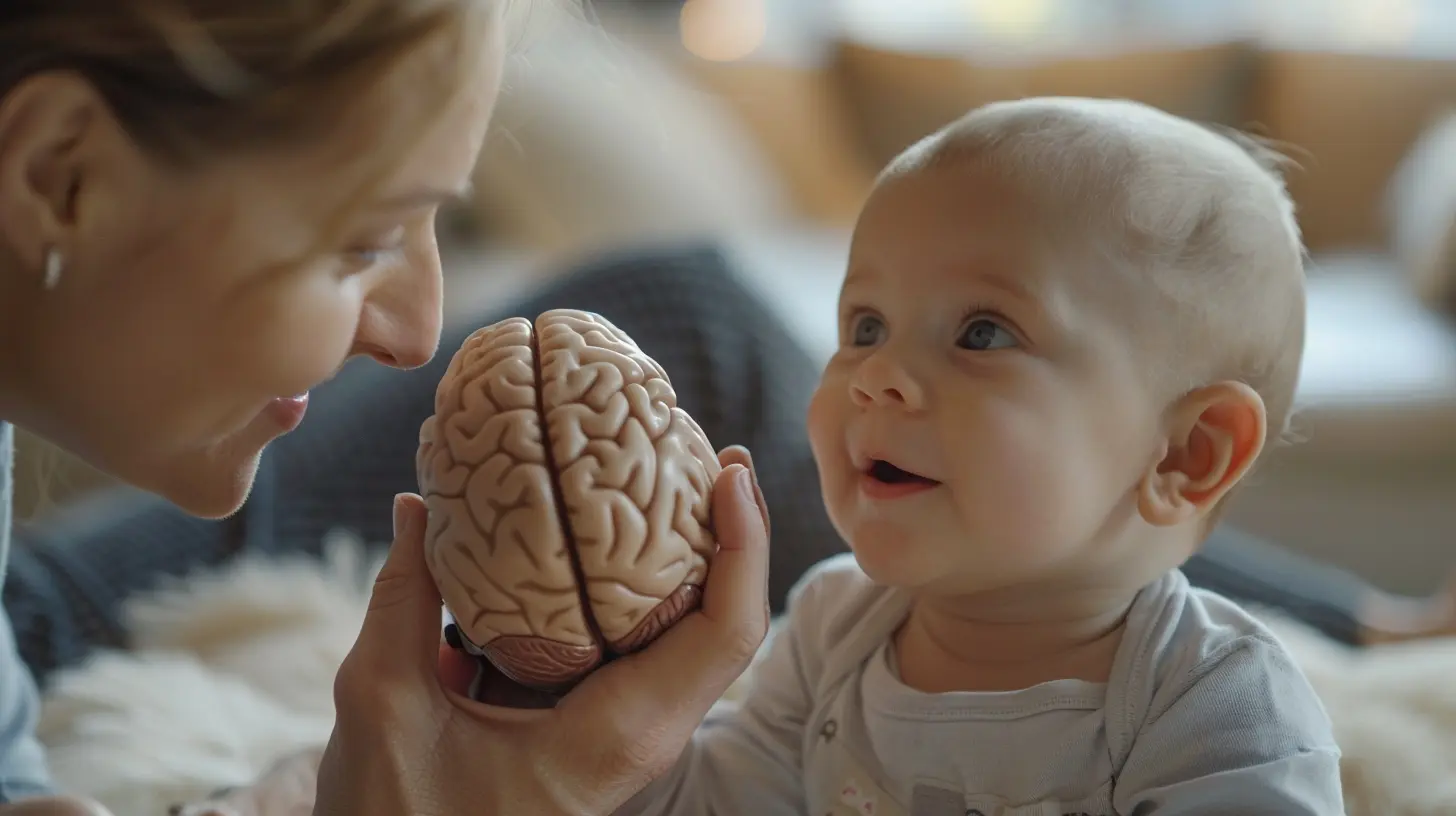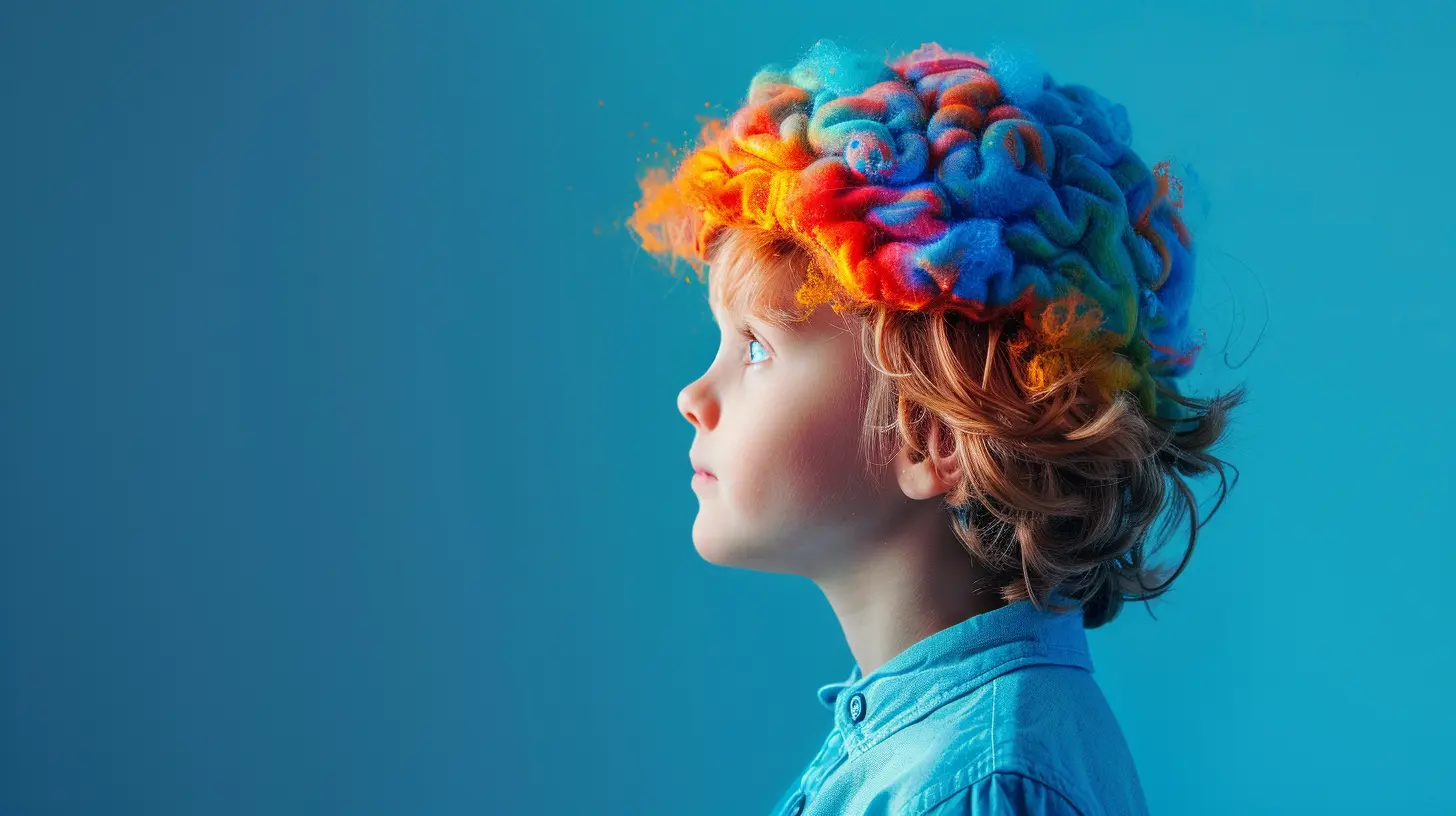What Every Parent Needs to Know About Early Brain Development
10 May 2025
As parents, we all want the best for our kids—and let’s face it, raising happy, healthy, and intelligent little humans can feel like an enormous responsibility. But if there’s one thing you should understand, it’s the vital role early brain development plays in your child’s entire life. It might sound complicated and scientific, but don’t worry—I’m here to break it all down in a way that makes sense. Think of your baby’s brain like a sponge—it’s soaking up every bit of information, every experience, and even the emotions you bring into their little world. Let’s unpack this together.
Why Early Brain Development Matters
You’ve probably heard the phrase “the first five years of life are critical.” Yeah, that’s not just parenting fluff—it’s backed by science. During these early years, your child’s brain is growing at lightning speed, forming billions of neural connections. Imagine building a foundation for a house. Without a strong base, everything on top wobbles. That’s exactly what early development is all about—laying the groundwork for your child’s future skills, emotional balance, social abilities, and overall well-being.The Sciencey Part (Without the Jargon)
Okay, here’s the deal: your baby’s brain is about 25% the size of an adult’s at birth, but by the age of three, it grows to about 80%. Mind-blowing, right? This rapid growth happens through a process called synaptogenesis—the creation of synapses, or connections between brain cells. Every time your child hears you sing a lullaby, feels the texture of sand in their little fingers, or sees the wide spectrum of colors in a picture book, their brain is firing on all cylinders, building those connections.But there’s a catch: not all connections stick. Around the age of five, the brain starts pruning away the unused ones, like a gardener trimming dead leaves. That’s why rich, stimulating experiences in early childhood are so crucial. What they "use" now will shape the brain they carry into adulthood.
Key Factors That Influence Early Brain Development
Now that we know how crucial early brain development is, let’s dive into the main factors that influence it. Spoiler alert: you, dear parent, play a massive role.1. Nutrition: Feeding the Brain
Think of a car—without fuel, it’s not going anywhere. Your child’s brain works the same way. Proper nutrition is the fuel that drives all that incredible growth. Breast milk, formula, and later, a balanced diet filled with healthy fats, proteins, and essential vitamins, are like premium gas for your baby’s brain. Omega-3 fatty acids (found in foods like fish and walnuts) are especially powerful brain boosters.Don’t forget about iron, either. It’s crucial for oxygen transport in the brain, and a deficiency can slow down development. If you’re wondering, “Does food really matter that much?” The answer is a resounding YES.
2. The Power of Play
Ever wonder why your toddler wants to stack blocks for the millionth time? Play isn’t just fun—it’s serious brain business. Through play, kids experiment, test boundaries, and develop problem-solving skills. When your child tries and fails to balance those blocks, they’re not just playing architect; they’re learning persistence and cause-and-effect.Outdoor activities, pretend play, and even roughhousing with parents activate different parts of the brain, teaching coordination, language, and social skills. So next time you’re tempted to say, “Not right now,” remind yourself that playtime is brain-building time.
3. Parent-Child Bonding (AKA the Magic Sauce)
Let’s get real—children thrive on love, attention, and a safe, secure environment. The emotional connection you share with your child has a direct impact on their brain development. When your baby hears your soothing voice or feels the warmth of your embrace, their brain releases oxytocin, the “love hormone,” which strengthens neural pathways and fosters emotional regulation.Simple acts like making eye contact, responding to their cries, and spending quality time together build trust and security. This bond becomes the safety net your child needs to explore the world with confidence.
4. The Role of Language Exposure
Here’s an interesting fact: the number of words your child hears in their early years correlates with their future IQ and academic success. Crazy, huh? Talking, reading, and even singing to your baby exposes them to a rich vocabulary that builds their language and cognitive skills.You don’t need to whip out SAT-level words—just narrate your day. “Look at that blue butterfly!” or “Mommy’s making dinner” can work wonders. Bonus points if you read to them daily—books open up a whole world of ideas and imagination.
5. Consistent Routines and Sleep
Sleep might be a battle in your house (believe me, I’ve been there), but it’s absolutely essential for brain development. During sleep, your child’s brain processes everything they’ve learned and stores it in long-term memory. Think of it like backing up a computer—it keeps everything organized and running smoothly.Creating a consistent routine—same bedtime, same nap schedule—signals your child’s brain that it’s time to wind down. And routines aren’t just about sleep. Regular meal times, playtimes, and quiet times provide structure, helping your child feel secure and in control.
The "Don'ts" of Early Brain Development
Now that we’ve gone over what to do, let’s touch on what NOT to do. Because, let’s face it, sometimes even well-meaning parents make mistakes.Excessive Screen Time
Raise your hand if letting your toddler watch a cartoon buys you 15 minutes of sanity. (No judgment—we’ve all done it.) But too much screen time can actually harm early brain development. Kids under 2 need real-world interaction to make those neural connections—not flashy animations and touchscreens. Save the screens for when they’re older, and instead, let them explore the world around them.High Stress Levels
Constant stress—whether it’s from a chaotic home environment or harsh discipline—can flood your child’s brain with stress hormones like cortisol. Over time, this can interfere with their ability to regulate emotions and even impair learning. Instead, aim for a calm, supportive household. Nobody’s perfect, but small changes—like taking deep breaths when you’re upset—can make a big difference.
How Your Role as a Parent Shapes Your Child's Future
Here’s the bottom line: there’s no single “right” way to parent, but understanding the basics of early brain development helps you make informed decisions. Your everyday actions—what you feed your child, how you interact, the environment you create—matter more than you think. You’re not just raising a child; you’re building their future. And trust me, every cuddle, every word, and every moment of play adds up.Wrapping It Up
Parenting isn’t a science experiment, and you don’t need a Ph.D. to help your child’s brain develop. What you do need is love, patience, and an understanding of how these early years set the stage for everything that comes next. So whether you’re singing off-key lullabies at 2 a.m. or cheering as your toddler scribbles on the walls, remember: you’re doing the work of a lifetime. And honestly? That’s pretty amazing.all images in this post were generated using AI tools
Category:
Child DevelopmentAuthor:

Austin Wilcox
Discussion
rate this article
3 comments
Angie Fry
Great article! Understanding early brain development is crucial for nurturing our little ones. It's fascinating how simple interactions and routines can shape their future. Thanks for highlighting these essential insights—every parent can benefit from this knowledge to help their children thrive!
May 14, 2025 at 3:02 AM

Austin Wilcox
Thank you for your kind words! I'm glad you found the insights valuable for nurturing our little ones. Every interaction truly makes a difference!
Luna McBride
This article brilliantly highlights the crucial stages of early brain development and how nurturing interactions shape lifelong learning. Parents should prioritize quality time, enriching experiences, and responsive communication, as these foundational elements significantly influence cognitive and emotional growth in their children.
May 12, 2025 at 3:45 AM

Austin Wilcox
Thank you for your insightful comment! I completely agree—nurturing interactions are vital for fostering healthy brain development and lifelong learning.
Riven Bellamy
Essential insights for nurturing minds!
May 10, 2025 at 3:07 PM

Austin Wilcox
Thank you! I'm glad you found the insights helpful for fostering young minds.



